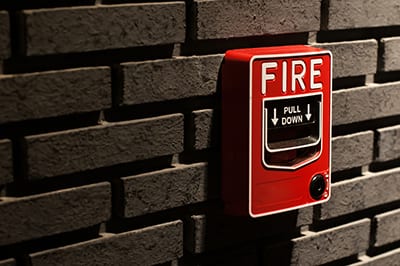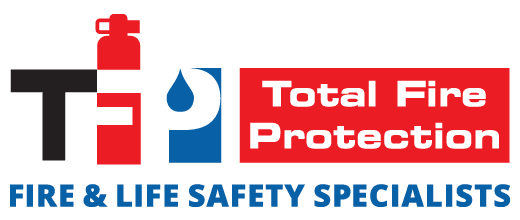 Commercial fire alarm systems play an important role in alerting building occupants of a possible fire, providing them with enough time to evacuate. Fire alarms, however, can be complicated to operate if you’re not familiar with the system.
Commercial fire alarm systems play an important role in alerting building occupants of a possible fire, providing them with enough time to evacuate. Fire alarms, however, can be complicated to operate if you’re not familiar with the system.
In order to eliminate any confusion and keep employees informed and out of harm’s way, we’ve compiled a list of frequently asked questions.
Q: Is your fire alarm connected to your smoke detector?
A: Commercial smoke detectors can be connected to fire alarm control panels. If connected, the fire alarm control panel will set off the alarm horn in the event that smoke is present. It’s an easy way of protecting your employees and alerting them of any fire dangers.
However, even with no one in the building, precautionary methods are set in place to alert emergency personnel of a fire. Central station monitoring connects the building’s fire alarm system to a monitoring station via the internet, a landline, mobile line, or an alternative communication medium. Staff members are then able to alert emergency services of a fire.
Q: How often should commercial fire alarms be inspected?
A: Your building’s fire alarm system should be inspected and tested on a semi-annual basis in order to ensure that all systems are ready to deploy in an emergency. Qualified technicians should test, inspect, and maintain your fire alarm to ensure efficiency.
Q: What does the beeping noise mean that’s coming from the fire alarm?
A: Beeping or chirping noises may seem strange and quite unnerving if you don’t know what they mean.
- Batteries need replacement – you may need to replace existing batteries with new ones.
- Loose or improperly installed batteries – there may be a disconnect between the battery slot and connections. Ensure that the batteries are inserted properly by popping them out and putting them back in.
- Dirty alarm cover – dust and dead bugs can collect in the sensor chamber which can cause the fire alarm to beep. On occasion, check for any dust etc. collecting in the sensor chamber and clean it out.
- Environmental issue – humidity or non-fire related smoke can cause a commercial fire alarm to malfunction.
Q: What do I do if I see an error code on the fire alarm panel?
A: Fire alarm panels are extremely sensitive and can cause an error code for a variety of reasons, including a power failure. Keep your fire alarm properly functioning by having a qualified technician inspect it to uncover and fix any code errors.
Q: What is the difference between conventional and addressable fire alarms?
A: The main difference is the size of building it can protect. Conventional alarms are ideal for smaller commercial buildings i.e. single-story office buildings and will go off individually if smoke is detected. Addressable fire alarms are made for large buildings or campuses and make for less complex installations.
Addressable fire alarms, in combination with CO detection, can detect and send different signals for both fire and carbon monoxide, offering more advanced programming flexibility. For large premises such as multi-story office buildings requiring more than 30 connectable devices, addressable combination fire and CO detectors are an option.
At Total Fire Protection, we go out of our way to ensure the safety of our clients, taking professional measures to prevent fire and life safety emergencies. Since our products and services are in accordance with NFPA 72 (National Fire Alarm Code) and NEC (National Electrical Code), you can rest more easily knowing that we have you covered.
For fire alarm and smoke alarm inspection, maintenance and testing services for your facility or business, contact Total Fire Protection by calling (718) 785-8297.




